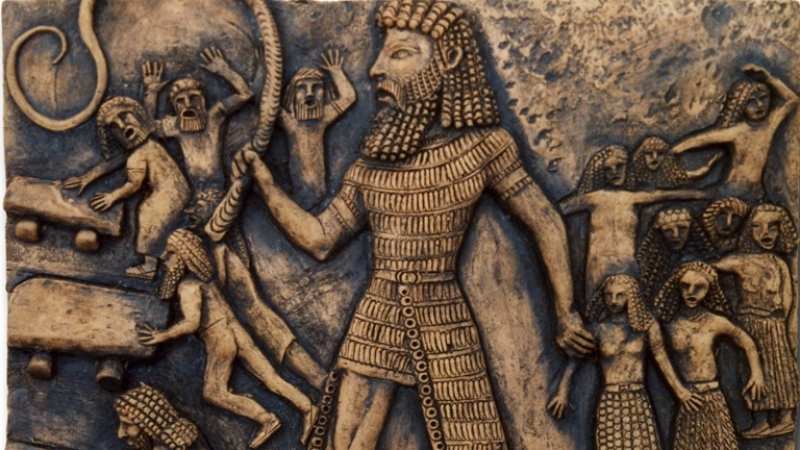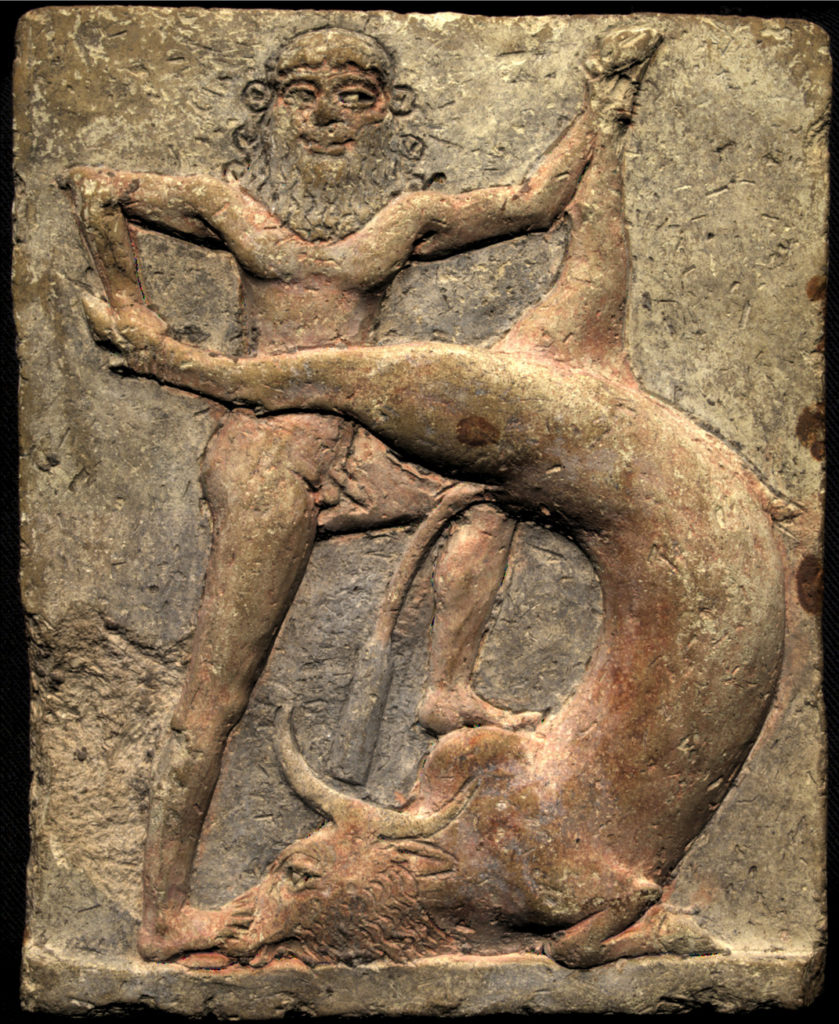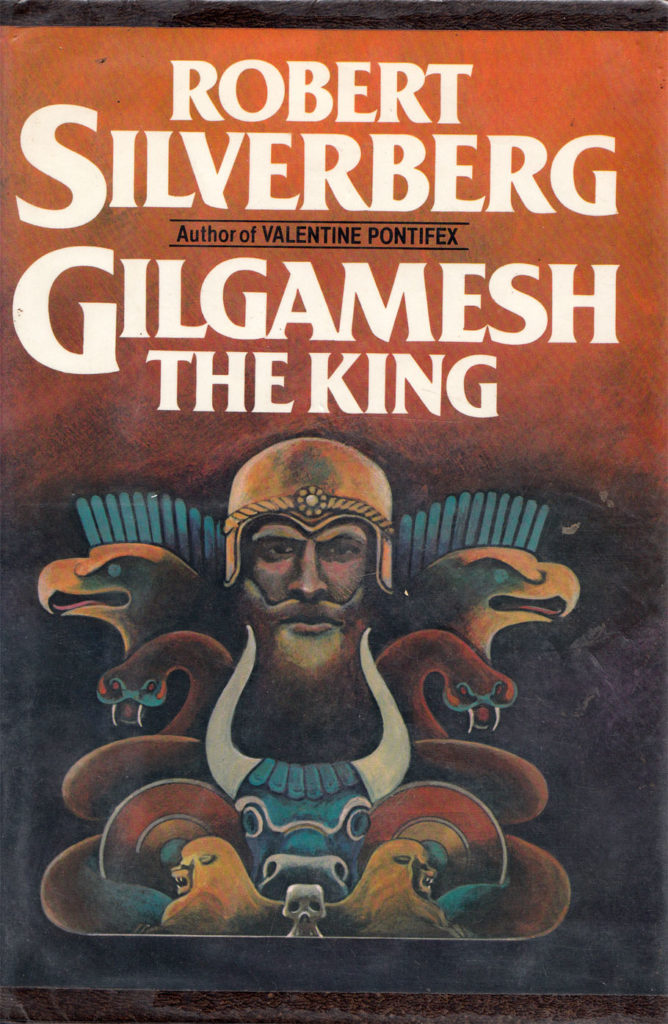He was an extraordinary king from ages past now shrouded in myth and mystery. ANDREW JOHNSTONE talks about Gilgamesh, and a book that brings him alive in a new age.
 Some 2500 or years before common era (BC) there was a king called Gilgamesh who by all accounts was a man of extraordinary talents, who ruled the city state of Uruk (on the banks of the Euphrates in a territory now part of Southern Iraq) with so much vigour that the people were pushed to the brink of despair.
Some 2500 or years before common era (BC) there was a king called Gilgamesh who by all accounts was a man of extraordinary talents, who ruled the city state of Uruk (on the banks of the Euphrates in a territory now part of Southern Iraq) with so much vigour that the people were pushed to the brink of despair.
The men were exhausted by his energy for war, work, construction, games and partying while the women were exhausted from his sexual attentions (Gilgamesh was insatiable). He deemed it his right to possess each and every woman that was his fancy, in particular young brides on the eve of their weddings. In his mind, he was bestowing a King’s blessing upon them as they set about a new course in life, but in their minds he was an unwelcome intruder interfering with one of life’s more sacred moments.
Let’s be clear, Gilgamesh was not an evil king, just a bit self-absorbed and unaware of the strains he placing on the average Urukian. The people pleaded with their gods for respite and the gods’ solution was Enkidu, a man they created from spittle and clay who was in every way Gilgamesh’s equal. They planned that Enkidu might vanquish Gilgamesh, but instead the two men became the greatest of friends, and as a result Gilgamesh calmed down until the gods took Enkidu’s life a few years later in retaliation for some offensive shenanigans the two men instigated.
Almost mad with grief for the loss of the only true friend he had ever known, Gilgamesh set off on a quest to find a cure for death, asking himself over and over: “What is the point of all our efforts if in the end we are consigned to an eternity in the dusty afterlife.” (The afterlife his people believed in was no paradise, and Gilgamesh was determined to avoid it). He learned in the end that death is an inescapable part of life, and the solution to the fear was to live a purposeful and fulfilling life.
The world’s oldest surviving work of literature, The Epic of Gilgamesh is a series of poems based on an actual historical figure, though the various versions of the epic are riddled with myth, exaggeration and histrionics. This aside, the epics are a grand insight into a flourishing civilisation – they maintained a fertile agricultural empire governed by ingenious flood control and irrigation systems that supported an urban society possessed of advanced architectural, metallurgical and record keeping skills. It also offers a window onto the origins of some cherished stories that persist to this day, including the account of one great and infamous flood.
 A wise king who lived some thousand or so years prior to Gilgamesh is watching the weather and predicts that heavy rains are going to cause the nearby river to flood, so he gathers up most of the population (some choose to stay put) and as many animals, seeds and supplies as he can manage, and heads for the safety of the high mountains. The river breaks its banks and washes away the city, people and farmland, leaving the fortunate survivors to start everything anew.
A wise king who lived some thousand or so years prior to Gilgamesh is watching the weather and predicts that heavy rains are going to cause the nearby river to flood, so he gathers up most of the population (some choose to stay put) and as many animals, seeds and supplies as he can manage, and heads for the safety of the high mountains. The river breaks its banks and washes away the city, people and farmland, leaving the fortunate survivors to start everything anew.
A simple story about a thoughtful king was set to become something else altogether, and by the time of Gilgamesh it had changed out of sight. The alterations and elaborations included a giant boat, some stuff about humanity being a disappointment to their creators, and then there is the bit about the gift of eternal life granted the king for saving humanity – not all the gods were in agreement about the genocide, and in their gratitude for the king’s actions they gave him the greatest gift at their disposal. (It is this aspect of eternal life granted to the king that sets Gilgamesh off on his quest. If it is possible, he means to have it). By the time the story reaches some Hebrew scribes a thousand or so years later, the king is no longer a king and he has a new name and back story and the many gods have been replaced by one (a recent innovation called Yahweh) and so on.
 One of my favourite storytellers is American speculative fiction master Robert Silverberg (born 1932) and since discovering him in my early teens I have devoured his various sci-fi and fantasy works with the kind of vigour Gilgamesh might have appreciated. Among my favourite Silverberg books is his retelling of the Gilgamesh story, Gilgamesh The King. Staying true to the original text (recorded on clay tablet) Silverberg lovingly (and carefully) details time and place while presenting the story in easily digestible language and terms. He avoids affection and carefully examines the mythology contained within the epics, making it clear to the reader how stories and legends develop and change over time. Gilgamesh The King is an interesting and entertaining adaptation of an important historical artefact, and well with your time.
One of my favourite storytellers is American speculative fiction master Robert Silverberg (born 1932) and since discovering him in my early teens I have devoured his various sci-fi and fantasy works with the kind of vigour Gilgamesh might have appreciated. Among my favourite Silverberg books is his retelling of the Gilgamesh story, Gilgamesh The King. Staying true to the original text (recorded on clay tablet) Silverberg lovingly (and carefully) details time and place while presenting the story in easily digestible language and terms. He avoids affection and carefully examines the mythology contained within the epics, making it clear to the reader how stories and legends develop and change over time. Gilgamesh The King is an interesting and entertaining adaptation of an important historical artefact, and well with your time.










